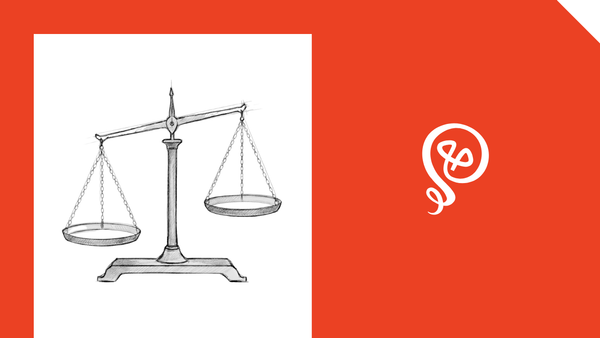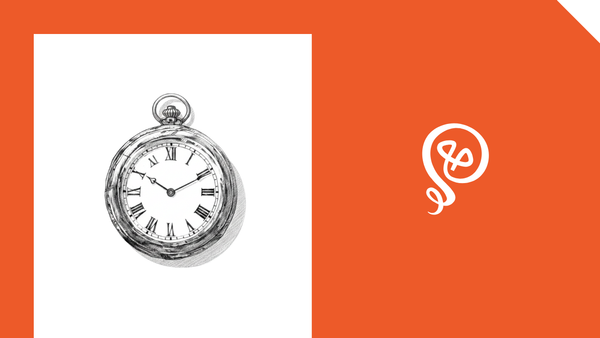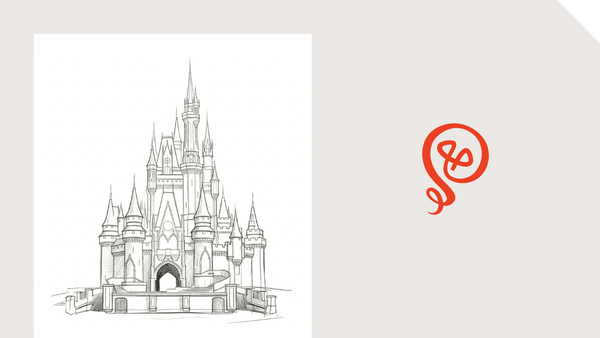The Longer My Career, The More Clarity I Have
Past experiences led me to my current career choices.

A few weeks ago, I had a milestone birthday.
I turned 40.
I had a virtual chat with someone a few days later. He’d just turned 30 and was contemplating his career direction. To me, he said, “40 is the new 30.”
A lot of things are better now than when I was 30.
When I was 30, I was a product manager at a software company. I worked hard, all the time, wanting to make the product better. Eventually, I rose to an executive role. I thought I could drive change from within.
At 40, I’m a solopreneur. There are no more roadblocks in my work. If I want to make a change, I make a change.
I think about work differently now than when I was 30 (and certainly my perspective has changed from the start of my career). With time comes wisdom, perhaps?
Or maybe some people have figured these things out sooner. But I believe I went down a career path for a reason, and if it took until 40 to gain clarity, so be it.
My time has to be fulfilling.
Notice I said “time has to be fulfilling” and not “work has to be fulfilling.”
We won’t all find fulfilling work. Either it’s a competitive field and everyone wants that job or it doesn’t pay well.
But what I value more than work is my time.
I’m a professional writer. I write for clients (blog posts, eBooks, etc). I’d love to get paid simply for my own ideas. But 90% of the work reflects the client’s ideas, not mine.
And that’s OK. Because my writing work pays well. And I write fast, so I’m not spending a ton of time on client work each week. This frees me up to spend time on my own writing projects or spend time with my family.
And flexibility is a necessity. When I was working for employers, I had to have the flexibility to choose when and how work got done. Sitting in a car on a long commute? Not a fulfilling use of my time. Ending my day at 3:00 pm to pick up my child from school? A fulfilling use of my time.
I’ll avoid repetitive work at all costs.
Falling into the bucket of “my time has to be fulfilling”: I hate boring and tedious work.
It comes with nearly every job, right? You have a bunch of tools to use and spend time on repetitive tasks. It takes time away from actual work.
I started toying around with automation back when I was a product manager. I had a specific problem: customers would submit tickets about software bugs. Then I had to move the bug information over to the project management tool that the development team used. It was necessary work. And also repetitive work.
I found a tool to automate this: Zapier [affiliate link]. And I was thrilled with the results. I started automating more work. I went to new jobs and implemented automation again.
My last corporate job was with an employer that didn’t want to spend any money on tools. It made my work so much harder. I was doing so much stuff manually. At one point, I even paid for a tool out of my own money, but then thought, “Why am I spending my money to save time? It’s not my fault that my employer is making me inefficient.”
When employers don’t invest in tools to make work easier, it shows how little they value their employees’ time. And how they can’t do the math that “getting rid of repetitive work” means “more time for valuable work.”
As a solopreneur, I’ll pay for all kinds of tools. Anything to save me time or improve my work.
Terrible people steal my joy.
As an Elder Millennial, I spent most of my career thinking that climbing the corporate ladder was the ultimate goal.
That meant tolerating a lot. I had to get along with some truly toxic colleagues — the type that would scream during meetings and belittle others. But they were more tenured and the behavior was deemed acceptable by management.
Then I became part of the management. I got an inside peek into how much was tolerated, and why.
Incompetent people rose to the top because they were loyal. I could work hard, but it didn’t make things better. In fact, it made me feel worse to see terrible behavior rewarded.
I joined a company that claimed to be “people-first.” The people were nice, but the company was a complete dumpster fire.
It’s absolutely worth trying to find a company that cares about people and doesn’t tolerate BS. However, that can be hard to determine during the interview process. I was certainly fooled.
Now that I’m a solopreneur, I don’t put up with terrible clients. If they don’t respect my work, pay me late, or are rude, I’ll drop them as a client.
I like to control the outcome.
If you’d asked me when I was younger about my ultimate career goals, I would have replied, “I want to be a CEO.”
When I became part of the executive team, I thought it would maybe happen someday. The line of succession was pretty clear.
But the closer I got, the more I realized I didn’t want it.
What I liked was the idea of impacting a business. Strategic vision. Driving change.
Eventually, I knew the change I wanted to see wasn’t going to happen at that company. I moved on. I changed careers. I thought I could rise to the top again.
Except… that wasn’t what I wanted, after all.
I’ve always had a lot of confidence in my abilities. What I wanted was to impact the outcome. But not necessarily lead.
The corporate world is designed around managers, not individual contributors. That was the only path to influence decision-making (and money).
And that wasn’t the right path for me. Solopreneurship is. I’m wholly responsible for my own success.
In truth, this is the right time. The world was different when I was starting my career as a young 22-year-old. I was different. I had no desire to be self-employed.
It’s the passage of time that really helped me refine what I want.

It’s ok to change directions.
At one point in my life, I hired several roles. I’d glance through resumes and if I saw too many jobs in a short period of time, I’d think, “Yikes, job-hopper.”
I know better now.
It’s okay to admit when a job isn’t what it was cracked up to be.
It’s okay to take a job that isn’t the job you really want and keep looking for something else.
It’s okay to admit that an industry you’ve worked in for (checks watch) 15 years isn’t where you want to be anymore.
I pivoted. Left product management and executive role and started over.
At one point in my life, I would have judged someone like myself. It was ingrained in me that I needed to “Climb the ladder!” Why on earth would I start over, at the bottom?
Because some things aren’t worth the money and the prestige. They’re not worth your mental health.
I found what I was looking for when I bet on myself and started my own business.
I’m now 40. But I don’t think this could have happened at any other point in my life. All of those past experiences? Led me to where I am today.
You can read about the future of work and career pivots on my Substack.






